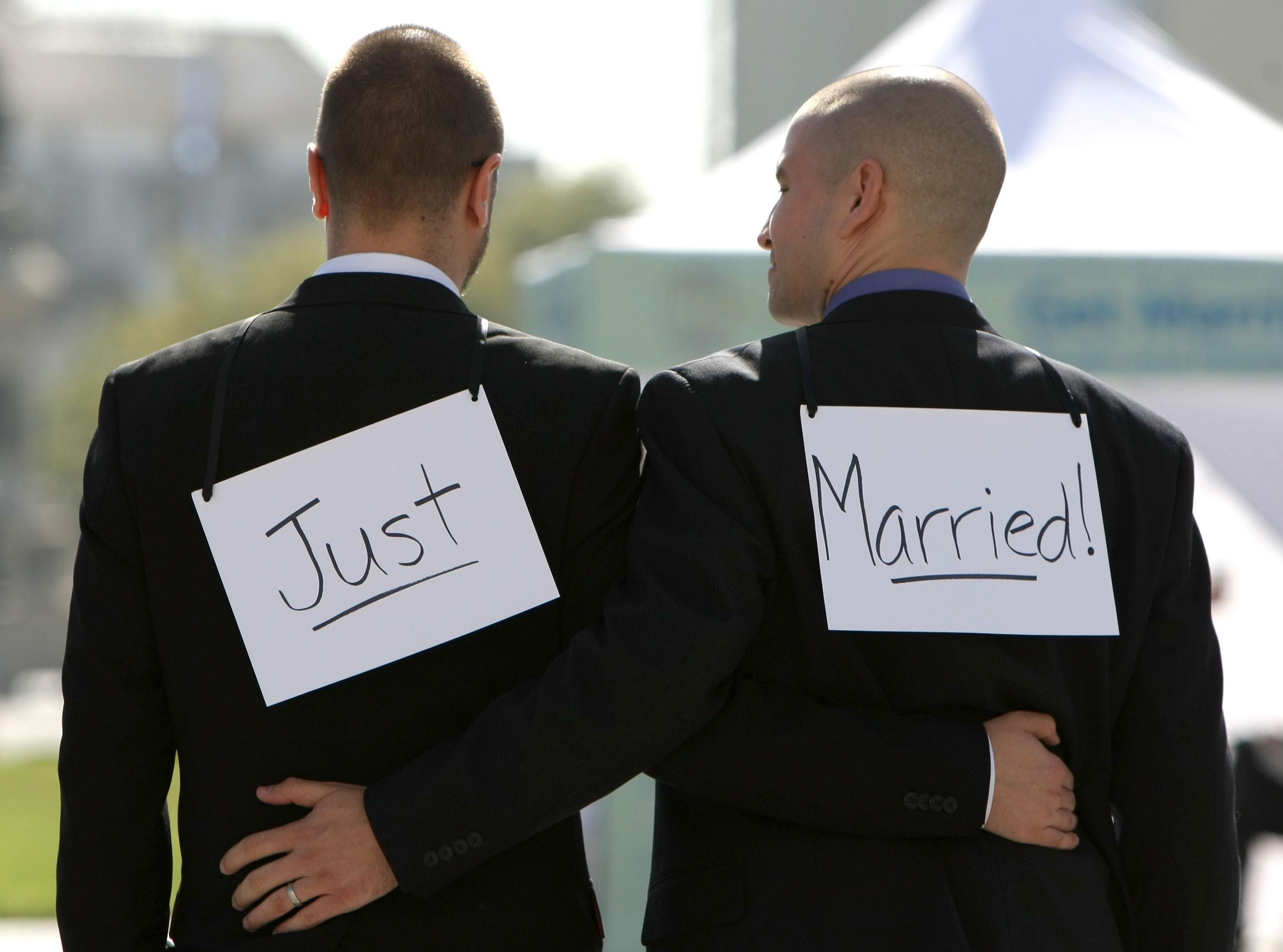On Monday morning, the Supreme Court declined to review seven gay marriage decisions out of five different states. In each case, an appeals court had ruled that state-level gay marriage bans are unconstitutional. The Supreme Court’s refusal to hear every case means that gay marriages can begin immediately in Indiana, Oklahoma, Utah, Virginia, and Wisconsin.
The move is unexpected and somewhat bizarre. Most court-watchers, including me, assumed the justices would wait to make a move on gay marriage until a circuit court ruled that state-level marriage bans were constitutional, swimming against the tide. At that point, the Supreme Court would be presented with a circuit split, essentially forcing it to wade in. And since the 6th Circuit seems poised to rule in favor of anti-gay-marriage laws, the justices probably would not have had to wait long.
It appears, however, that the justices were not eager to keep gay couples in legal limbo while they awaited the 6th Circuit’s ruling. Instead, their move on Monday allows thousands of gay couples in five different states to wed legally. Should the 6th Circuit still rule against gay marriage, of course, the Supreme Court could take the case then. For now, however, the justices have rid themselves of the issue.
There is one other possibility here. If no circuit court ever rules against gay marriage, the gay marriage question will be effectively settled, and the Supreme Court will never have to wade in again. It may be that the justices are hoping the lower courts rule uniformly on the issue—thereby making United States v. Windsor stand for a fundamental constitutional right for gay couples to marry. The tea leaves, at this point, remain hazy. But the court’s startling decision today suggests that no option is off the table.
